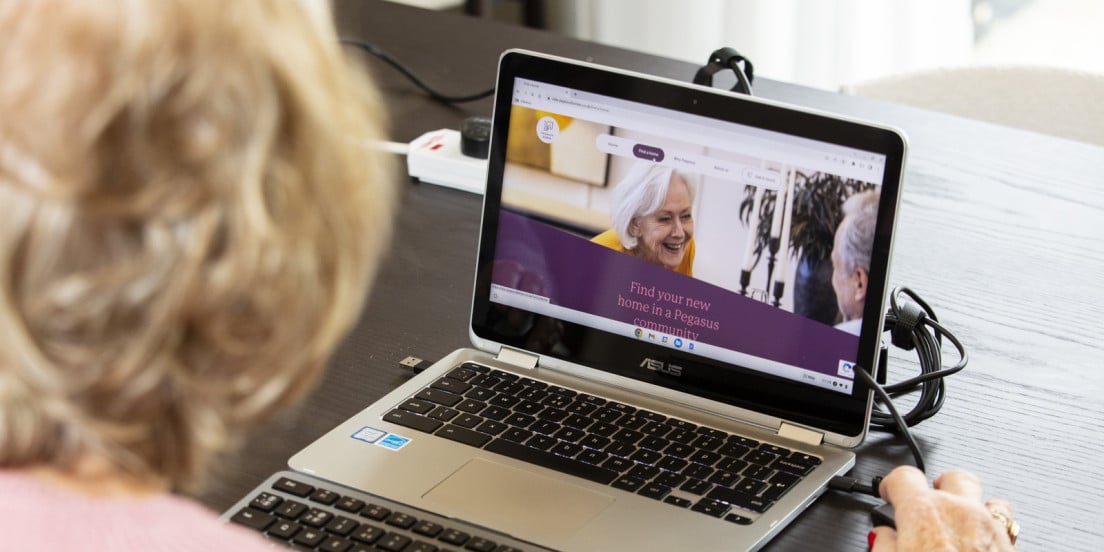Understanding The Digital World In Your Golden Years
15 January 2025
Posted under: Hobbies & interests, News articles

Learning to navigate the internet and the digital world is an empowering journey, allowing you to stay connected, informed and entertained. But for retirees, who may not have used similar technology during their working life, learning new skills in later life can come with challenges. We are pleased to offer some practical tips to help you embrace it with confidence.
Getting Comfortable with Technology
If you are new to using digital devices, you should start small. With practice, smartphones, tablets or computers can become indispensable tools for daily life. Many community centres and libraries offer beginner-friendly digital literacy classes, often tailored to older adults, making it easier to learn in a supportive environment.
Once you have learnt the basics and are familiar with being online, videos on YouTube can also be a fantastic resource for learning not just how to use your devices but how to do just about everything! Free video tutorials on virtually any tech-related topic with step-by-step guidance from friendly instructors can be found at the push of a button.
Staying Connected with Loved Ones
One of the greatest benefits of the digital world is its ability to keep us connected, no matter where we are. Video-calling platforms like Zoom, Skype or FaceTime make it easy to see and speak with loved ones in real-time when visiting in person is not an option. It’s the same premise as a phone call but with the addition of a video link, you can now see your loved ones as you speak.
Social media platforms such as Facebook are another excellent way to stay in touch. You can see updates, photos and posts from your children, grandchildren or old friends. We recommend approaching social media with caution, though. Accept friend requests only from people you know and be mindful of sharing any personal information publicly.
Messaging apps like WhatsApp or Messenger are also valuable tools for regular communication. These platforms allow you to send text messages, photos and videos, and even participate in group chats with your family or communities.
Avoiding Online Scams
Unfortunately, as the internet has developed to make life easier for people and connect people all over the world, it has become home to scams that target individuals of all ages, in particular retirees. The scams have become sophisticated and it can be easy to be caught by them. Whilst this can be concerning, protecting yourself online starts with being cautious and informed.
Be skeptical of unsolicited emails and messages
If you receive an email or text claiming you have won a prize, owe money or need to verify your bank details, pause and think before responding. Scammers often use urgency to pressure victims into acting without verifying the source.
Never share personal information
You should remember that legitimate organisations will never ask for sensitive information like your bank account or passwords via email or phone. If you unsure, you should refuse to share your information. Reputable organisations will understand your concern and look to validate who they are through other methods.
Check website authenticity
Before making online purchases or entering personal details, ensure the website is secure. Look for “https://” in the web address and a padlock symbol in the browser bar.
Use strong passwords
We are all guilty of using the same password with minor tweaks for our accounts. But once scammers have your password for one site, if the password is used elsewhere they can crack that too. Create unique passwords for each account by using a memorable mix of letters, numbers, and symbols. Consider using a password manager to keep track of them.
If you suspect you have encountered a scam, report it to Action Fraud (the UK’s reporting centre for fraud and cybercrime) or your local equivalent.
Don’t Feel Embarrassed
Scammers are more sophisticated than ever. Emails and texts may look very similar to the communications you receive from the actual business as scammers try to make their fraudulent activity look as believable as possible.
If you suspect you have been scammed, report it as soon as possible as it could help others. It is not just retirees that are vulnerable to scams, everyone can be fooled.
Exploring New Interests
The digital world is a treasure trove of learning opportunities. Platforms such as YouTube or Skillshare offer tutorials on everything from painting to baking while websites like Duolingo can help you learn a new language (learning a new language has been shown to help delay the onset of things such as Alzheimer’s and dementia). Additionally, e-books and audiobooks allow you to explore literature at your convenience.
Social platforms like Pinterest can inspire creative projects and online forums or Facebook groups can connect you with like-minded individuals who share your hobbies or interests.
Maintaining Digital Security
Your online safety is crucial. Ensure your devices have antivirus software installed and keep it updated regularly. Two-factor authentication (2FA) should be added where available, giving you an extra layer of security by requiring a second form of verification. Be wary of public Wi-Fi networks when accessing sensitive information; instead, use your home Wi-Fi or a mobile data connection.
It’s also wise to back-up your important data, such as photos and documents either on an external hard drive or a secure cloud service.
Embracing Digital Social Groups
The internet provides numerous opportunities to join online communities. Virtual book clubs, discussion forums or fitness classes can help you stay socially active. These groups not only reduce feelings of isolation but also provide a space to share your thoughts and experiences with others.
The digital world can feel daunting at first, but with patience and practice, it becomes a valuable tool for enhancing your golden years. By staying informed, cautious and open to learning, you can unlock new ways to stay connected, explore interests and enrich your life.